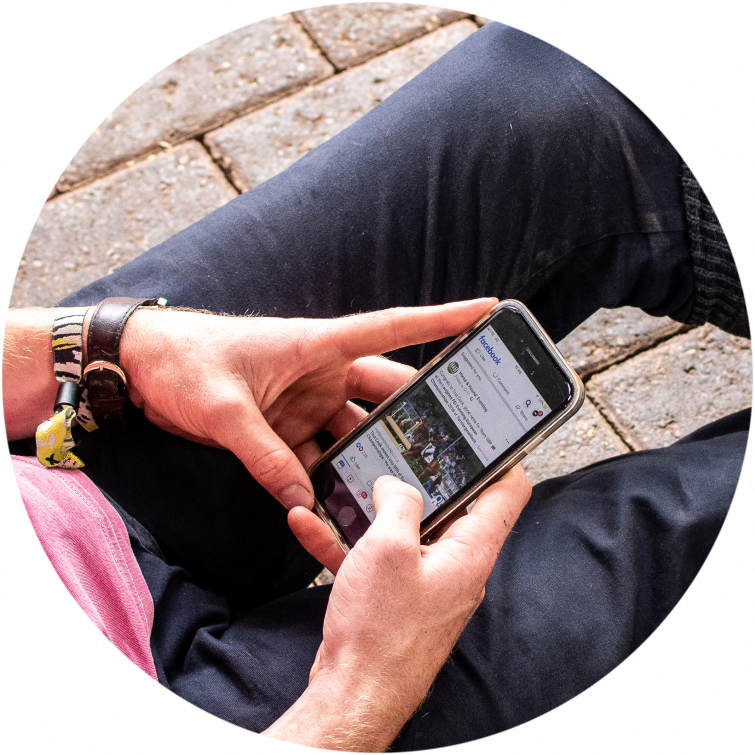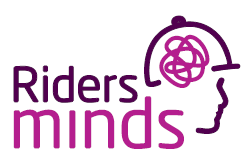
SOCIAL MEDIA AND MENTAL HEALTH
Social media and mental health are individually, ongoing and current ‘hot topics’. The impact on mental health from social media, perhaps an even hotter one.
As equestrians, we’ll be aware of specific instances in the equine industry, where social media has impacted mental health and, in some instances, with tragic consequences.

Horse and Hound ran an article in 2019 “Equestrians share concerns about social media distorting reality” looking at the effect on both riders, and horses.
Terms like ‘trolling’ are, sadly, becoming familiar; a whole new vocabulary has evolved of social media slang, acronyms, and emojis taking on different meanings.
Social media is a great tool for sharing experiences, encouraging others to overcome and achieve, showing mental ill-health can affect us all, directly or indirectly, that it’s OK to talk, and OK to not be OK.
Social media is great tool for developing business, connecting, networking, promoting, campaigning, advertising events, products, and horses too. Who’d have thought years ago that one could ‘view’ a horse without physically seeing it!
However, it’s often misused in many ways. Increased awareness, particularly teen awareness, is very important, especially around social media and mental health.
THE REALITY
Let’s remember we’re all vulnerable to physical and/or mental ill health, regardless of background, wealth, ethnicity, culture etc.
External factors, such as social media, can affect us, but it’s how we manage that is what’s important. It can misrepresent the truth and create conflicting feelings of inspiration and inadequacy. Often without any malintent. We like people seeing the best of us, and how well we’re doing. It helps with our own feel good factor too. A post can be aspirational and inspirational, but equally unachievable and impractical, representing the filtered reality we expose ourselves to online.
Often the reality is hard work, sweat, tears, disappointment, frustration, and sometimes unremarkably normal.
Joanne posts about her 70cm clear round on her 15hh grey, Paulus…
Unremarkable some may say, but behind the post is the fact that Joanne is incredibly proud of her achievement, overcoming a long struggle to regain her confidence after a nasty fall.
Or for example, we school for 30 mins and get 6 trot strides of perfect cadence. Hurrah! But, it’s only those six strides that are posted giving a certain perception and impression.
We need to remember that behind that six-stride snapshot, or the clear round, reality is often very different.
We can all make mistakes. Things happen. We can say something that others may misconstrue, twist, or distort.
Social media allows users to voice their opinions, good bad or ugly, directly to a person.
There are no filters. Language seems to be becoming increasingly unkind, hostile, vitriolic and worse.

However, they are opinions, not facts. We cannot control what someone else posts, however mean and nasty it is. What we can do is manage our reactions to it, put things in perspective. Yes this is often very hard to do especially when in the public eye, at the top of our sport and the smallest thing can be up for criticism by someone.
SOCIAL MEDIA TOP TIPS
An acronym to help you manage your social media and mental health connection:
![]() Stop comparing. Remember what’s posted is often only a snapshot, tip-of-the-iceberg of reality. Adopt a light-hearted ‘Good for you’ attitude, and trust yourself to get on with your direction, ambition, plans etc.
Stop comparing. Remember what’s posted is often only a snapshot, tip-of-the-iceberg of reality. Adopt a light-hearted ‘Good for you’ attitude, and trust yourself to get on with your direction, ambition, plans etc.
![]() Opportunity. Snapshots are still opportunities to see what others are doing, get ideas, things to try etc, but you decide whether to take them on board or not.
Opportunity. Snapshots are still opportunities to see what others are doing, get ideas, things to try etc, but you decide whether to take them on board or not.
![]() Control the controllables. You cannot control others eg. what they post etc, but you can control yourself: reactions, responses, thoughts, behaviour, your goals, aims, plans, targets, training, development etc.
Control the controllables. You cannot control others eg. what they post etc, but you can control yourself: reactions, responses, thoughts, behaviour, your goals, aims, plans, targets, training, development etc.
![]() Individuality. It’s your choice what/who you allow to influence you. You control social media rather than allow it to control you! Be interested, not obsessed with what others are doing.
Individuality. It’s your choice what/who you allow to influence you. You control social media rather than allow it to control you! Be interested, not obsessed with what others are doing.
![]() Applicability. What do you use social media for? Knowing this enables you to remain focused on your specific reason/purpose, separating stuff that matters from stuff that doesn’t.
Applicability. What do you use social media for? Knowing this enables you to remain focused on your specific reason/purpose, separating stuff that matters from stuff that doesn’t.
![]() Language. Watch your self-talk tone and language when viewing a post. Eg. ‘How do they do that? or Why can’t I do that?’. A curious, exploring, soft tone encourages and develops.
Language. Watch your self-talk tone and language when viewing a post. Eg. ‘How do they do that? or Why can’t I do that?’. A curious, exploring, soft tone encourages and develops.
A harsh, frustrated, demanding, aggressive one doesn’t. Be careful too when I ‘must, ought, should, got to…’ creep in as they negatively self-pressurise.
![]() Management. Increase your social media management skills. Manage your account: its settings, blocking, privacy, your profile, your information. Manage your posts: what you post, their purpose and/or intention, who’s the audience. Manage your reactions and responses to your posts. Manage your time spent on it per day/week.
Management. Increase your social media management skills. Manage your account: its settings, blocking, privacy, your profile, your information. Manage your posts: what you post, their purpose and/or intention, who’s the audience. Manage your reactions and responses to your posts. Manage your time spent on it per day/week.
![]() Emotion. What’s going on for you whilst on or in reaction to social media? This affects our frame of mind both positively and negatively.
Emotion. What’s going on for you whilst on or in reaction to social media? This affects our frame of mind both positively and negatively.
![]() Decide. Posts generate views, opinions, reactions. So decide and choose what you post rather than automatically post, otherwise you may get the unwanted or unexpected. Decide what you read or follow too: inspirational, positive, humour, fun, uplifting is mentally healthy.
Decide. Posts generate views, opinions, reactions. So decide and choose what you post rather than automatically post, otherwise you may get the unwanted or unexpected. Decide what you read or follow too: inspirational, positive, humour, fun, uplifting is mentally healthy.
![]() Ignore what’s harmful, derogatory, unhelpful. Yes, this can be a very tough call when we feel drawn to respond, may need to, and want to ‘set the record straight’. Sometimes comments warrant a response. Sometimes they warrant reporting. However, we have choice how we respond, react. Again they are opinions.
Ignore what’s harmful, derogatory, unhelpful. Yes, this can be a very tough call when we feel drawn to respond, may need to, and want to ‘set the record straight’. Sometimes comments warrant a response. Sometimes they warrant reporting. However, we have choice how we respond, react. Again they are opinions.
![]() Avoid engaging with negativity. Stop allowing negative comments to draw you in. Wastes time, energy and can impact your mental health and well-being.
Avoid engaging with negativity. Stop allowing negative comments to draw you in. Wastes time, energy and can impact your mental health and well-being.
Put the energy into yourself instead and focus elsewhere. Do not fight fire with fire. Do not give such comments the oxygen they need to continue.


